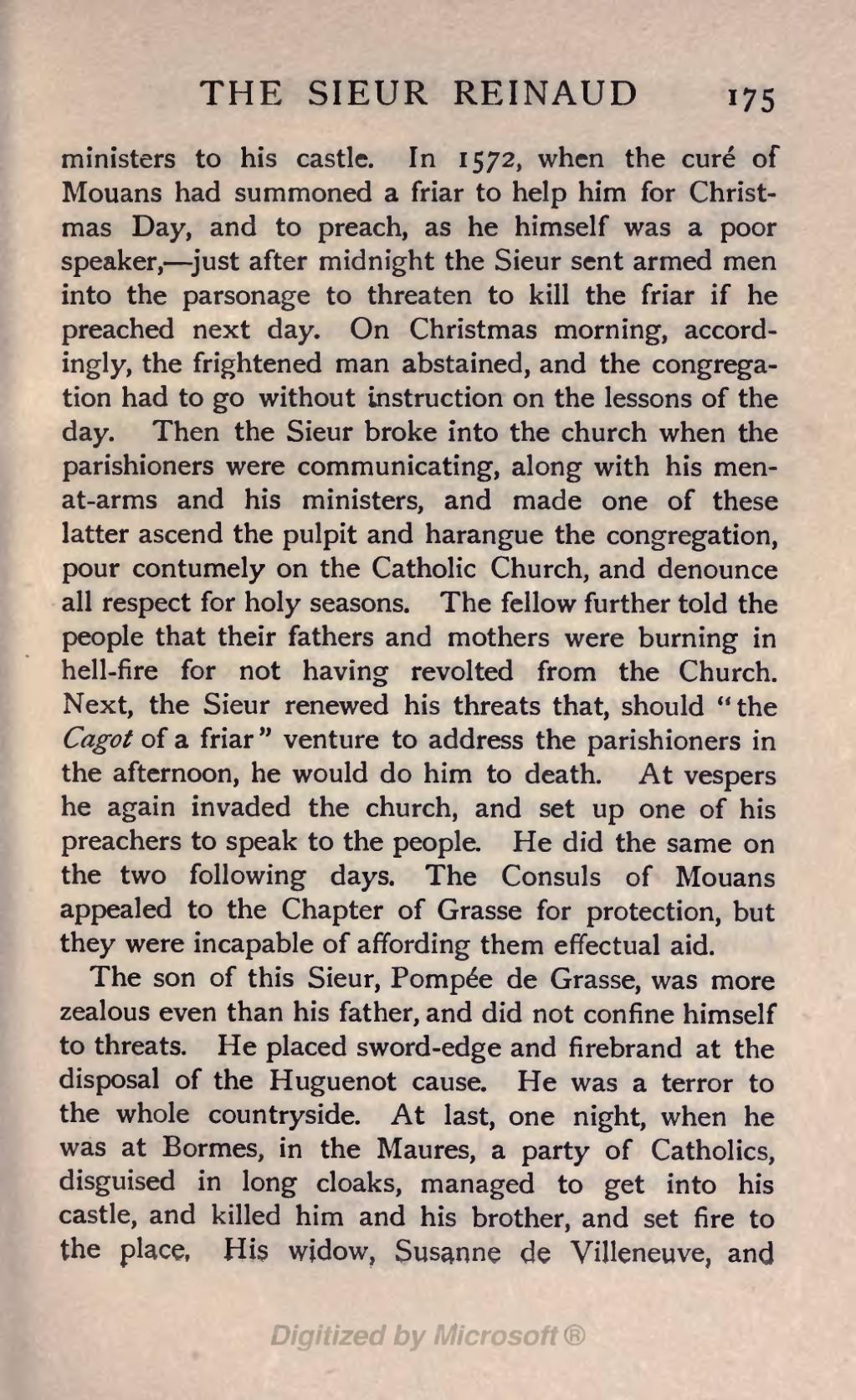ministers to his castle. In 1572, when the curé of Mouans had summoned a friar to help him for Christmas Day, and to preach, as he himself was a poor speaker,—just after midnight the Sieur sent armed men into the parsonage to threaten to kill the friar if he preached next day. On Christmas morning, accordingly, the frightened man abstained, and the congregation had to go without instruction on the lessons of the day. Then the Sieur broke into the church when the parishioners were communicating, along with his men-at-arms and his ministers, and made one of these latter ascend the pulpit and harangue the congregation, pour contumely on the Catholic Church, and denounce all respect for holy seasons. The fellow further told the people that their fathers and mothers were burning in hell-fire for not having revolted from the Church. Next, the Sieur renewed his threats that, should "the Cagot of a friar" venture to address the parishioners in the afternoon, he would do him to death. At vespers he again invaded the church, and set up one of his preachers to speak to the people. He did the same on the two following days. The Consuls of Mouans appealed to the Chapter of Grasse for protection, but they were incapable of affording them effectual aid.
The son of this Sieur, Pompée de Grasse, was more zealous even than his father, and did not confine himself to threats. He placed sword-edge and firebrand at the disposal of the Huguenot cause. He was a terror to the whole countryside. At last, one night, when he was at Bormes, in the Maures, a party of Catholics, disguised in long cloaks, managed to get into his castle, and killed him and his brother, and set fire to the place, His widow, Susanne de Villeneuve, and
